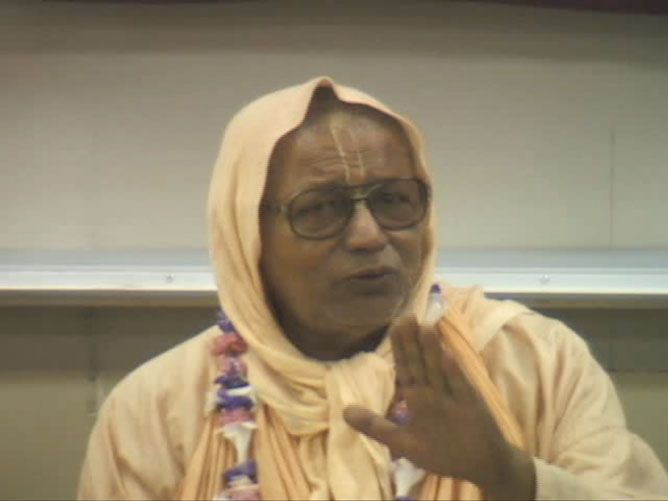WISDOM STORIES
THE PHYSICIAN’S KNIFE
The compassionate help the sadhus offer those who are suffering from the boil-like pain of false ego.
Adapted from a parable by Srila Bhakti Siddhanta Saraswati Thakur.
Once upon a time there was a boy with a severe boil on his back. He was so disturbed by the pain that he was ready to take his own life.
Seeing the boy in this condition, his family tried everything they could to treat the boil, but it was to no avail. Lastly, they resorted to constantly fanning the boy and keeping watch over him so that he would not be of any danger to himself. When the boy’s pain would become especially acute, they would gather around and blow over the boil.
Two neighbours who came by to visit observed the scene. One of them suggested to the family, “If the boy is in so much pain, why don’t you give him some painkillers. If you get him an anaesthetic that would make him unconscious, that would solve everything.”
The other neighbour offered, “Giving the boy an anaesthetic to make him numb or unconscious temporarily won’t really relieve his pain. The boy is suffering terribly, and it is piteous to see. His pain should be put to an end once and for all. Therefore, let us quickly make an arrangement to end his life. The practice of euthanasia has been perfected, and I am sure the boy will appreciate us doing this for him.”
The boy’s family listened respectfully to their neighbours but did not consider following the advice of these so-called sympathisers for even a moment. Instead, they bid them adieu and called an expert physician to come and examine the boy.
The physician soon arrived and gently examined the boy’s boil. After carefully considering the situation, he advised that the boil be surgically removed. Hearing this, the boy’s relatives began to cry thinking of the trauma this would cause for the boy.
When the boy heard them crying and found out what the physician had proposed, he became extremely angry and began to rudely rebuke the physician, “Have you come here to torture me! Get out of my house right now or I will have you arrested for attempted murder! Why don’t you put that scalpel into your own back first? Or better yet, why don’t you try putting it into the body of your own son? I’d rather die peacefully than lose my life in agony beneath a blade in your hands.”
Ignoring the boy’s outburst, the physician surprised everyone by quickly pinning the boy down by force and surgically removing the boil from his back within a matter of seconds. While everyone was in shock, he quickly bandaged the incision and took his leave.
Within an hour, all the boy’s pain ceased; within a few days, the incision was healing nicely, and within a couple weeks the boy returned to optimal health.
PURPORT
The boy represents an eternal soul, and the boil represents the false ego. The incessant pain the boy suffered is the misery that egotistical action invariably produces, and the boy’s desire to take his own life represents the self-destructive behaviour that the false ego contrives.
The boy’s family represents others who also identify with the false ego and seek only to indulge to it rather than remove it. They are the followers of the path of preya.
The boy’s neighbours represent impersonalists. As the neighbours advised that the boy should be made temporarily or permanently unconscious and thought that this was the best available option for the boy, so impersonalists say that the only solution to the soul’s suffering from false ego is to destroy the individual conscious self. They do not recognise the possibility of removing the false ego and living guided by the true ego in the eternal service of the Divine.
As neither the boy’s family members nor his neighbours could provide any real relief for him, so the soul is not truly uplifted by those who indulge the false self or those who seek to destroy the true self.
The physician represents the sadhu and a true Guru, and the physician’s scalpel represents the sadhu’s precise spiritual teachings.
The boy’s resistance to the physician is the soul’s attachment to the false ego, and the physician’s forcibly cutting out the boil is the sadhu’s compassion and sincere endeavour for the spiritual benefit of suffering souls.
Lastly, the boy’s returning to health and the permanent cessation of his pain represent the eternal life of peace, love, and joy that the true self experiences after being rid of the false ego by the sharp yet compassionate words of the sadhu.









